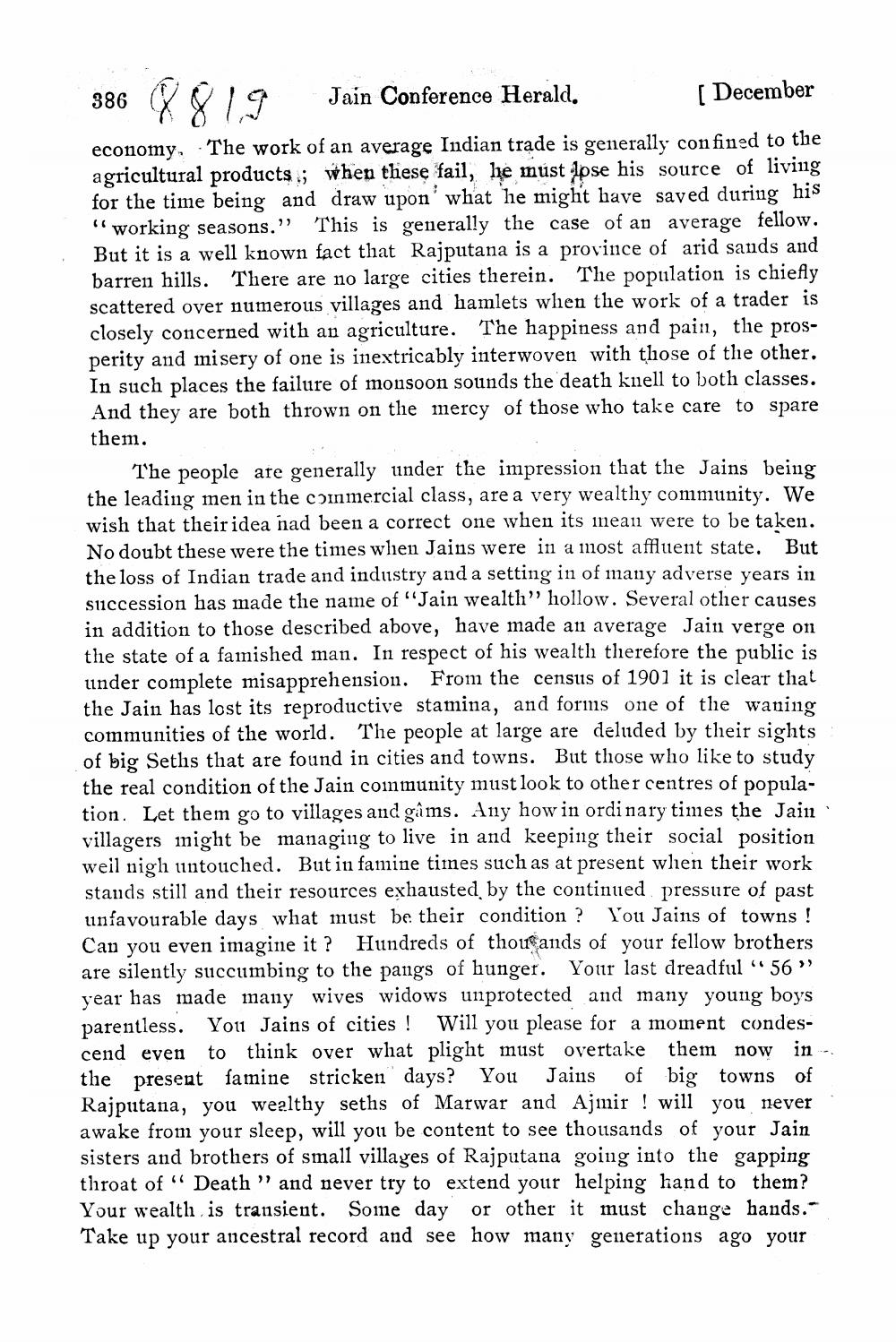________________
386 Q
ola
Jain Conference Herald.
[ December
economy. The work of an average Indian trade is generally confined to the agricultural products.; when these fail, he must Ipse his source of living for the time being and draw upon what he might have saved during his "working seasons." This is generally the case of an average fellow. But it is a well known fact that Rajputana is a province of arid sands and barren hills. There are no large cities therein. The population is chiefly scattered over numerous villages and hamlets when the work of a trader is closely concerned with an agriculture. The happiness and pain, the prosperity and misery of one is inextricably interwoven with those of the other. In such places the failure of monsoon sounds the death knell to both classes. And they are both thrown on the mercy of those who take care to spare them.
The people are generally under the impression that the Jains being the leading men in the coinmercial class, are a very wealthy community. We wish that their idea nad been a correct one when its inean were to be taken. No doubt these were the times when Jains were in a most affluent state. But the loss of Indian trade and industry and a setting in of many adverse years in succession has made the name of "Jain wealth” hollow. Several other causes in addition to those described above, have made an average Jain verge on the state of a famished man. In respect of his wealth therefore the public is under complete misapprehension. From the census of 1901 it is clear that the Jain has lost its reproductive stamina, and forms one of the waning communities of the world. The people at large are deluded by their sights of big Seths that are found in cities and towns. But those who like to study the real condition of the Jain community must look to other centres of population. Let them go to villages and gams. Any how in ordinary times the Jain villagers inight be managing to live in and keeping their social position weil nigh untouched. But in famine times such as at present when their work stands still and their resources exhausted by the continued pressure of past unfavourable days what must be their condition? You Jains of towns ! Can you even imagine it? Hundreds of thousands of your fellow brothers are silently succumbing to the pangs of hunger. Your last dreadful “56" year has made many wives widows unprotected and many young boys parentless. You Jains of cities ! Will you please for a moment condescend even to think over what plight must overtake them now in - the present famine stricken days? You Jains of big towns of Rajputana, you wealthy seths of Marwar and Ajmir ! will you never awake from your sleep, will you be content to see thousands of your Jain sisters and brothers of small villages of Rajputana going into the gapping throat of "Death” and never try to extend your helping hand to them? Your wealth is transient. Some day or other it must change hands. Take up your ancestral record and see how many generations ago your




